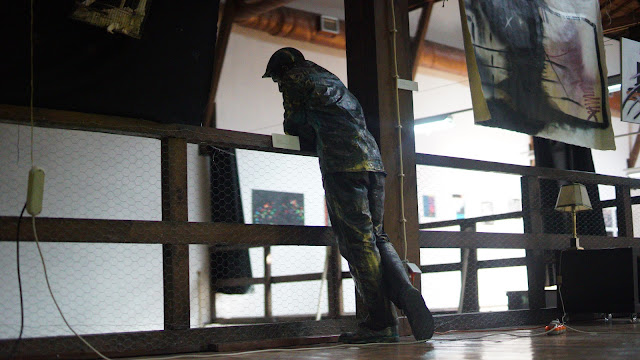Anarchy Cinemas documentary coming soon
Mental health issues are an epidemic in the UK. While an increasing number of people require access to mental health services, with 1 in 4 people facing mental health issues in their lifetime, the NHS budget for such services is underfunded: “mental health issues contribute just under a quarter of health problems in the UK, but it only receives 13% of the NHS budget”. Governmental bodies and charities have thus been forced to propose new and cost effective ways of tackling this growing problem.
Art has often been understood as a personalised form of expression, a depiction of the artists’ inner workings, and experiences, yet Art as providing a legitimate form of therapy for those suffering from mental health issues is a new, and growing concept.
Art has often been understood as a personalised form of expression, a depiction of the artists’ inner workings, and experiences, yet Art as providing a legitimate form of therapy for those suffering from mental health issues is a new, and growing concept.
Arts therapy provides patients with catharsis, through self help, with the underlying emphasis on self-exploration. It has been proven to alleviate anxiety, depression and stress while increasing resilience and wellbeing, and there has been a push by charities and parliamentary groups, to implement this cost effective, and useful form of therapy more widely.
One would assume then, that art as a career path would be a great vocation for those wishing to pursue it, allowing the artist to commit oneself fully to self exploration, and strengthening of mental health, whilst earning a living. Ironically however, a variety of factors have contributed to a growing mental health problem in the arts. Being a professional artist is one of the most precarious career choices available, a large amount of the work is self-funded, or voluntary, and what is paid tends to be temporary, and provides a very low income. Equally, the industry is highly competitive.
The seemingly perpetual rejection that comes with acting for example, undoubtedly effects self-esteem and well-being. With the low job security, financial pressures, rejection, and the effect these factors have on mental health, it’s not surprising that research supports a disproportionately high rate of mental health issues in the arts; a 2015 report by Victoria University for example found that “performing arts workers experience symptoms of anxiety ten times higher than the general population, and depression symptoms five times higher, saying that these statistics can be directly attributed to financial insecurity and poor working conditions”. This problem has been noted by key institutions in the industry however, leading to a number of charities being established, such as ArtsMinds, that provide support and resources for artists suffering from mental health issues.




Comments
Post a Comment